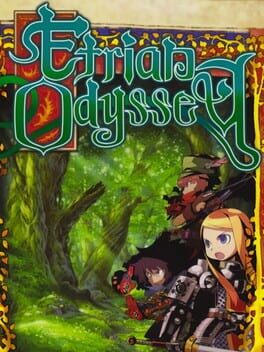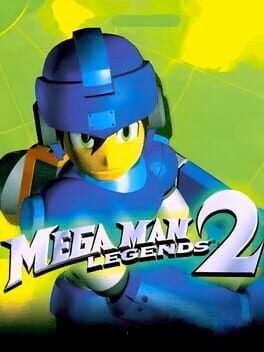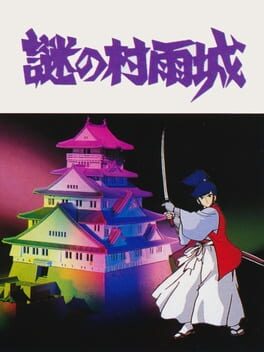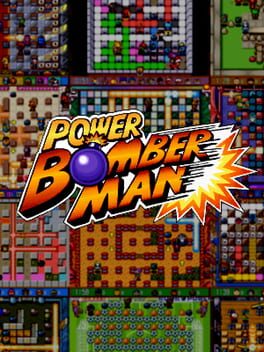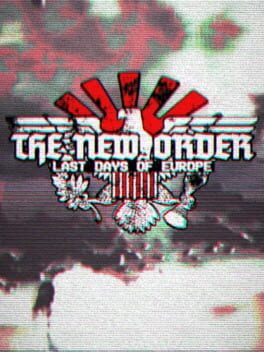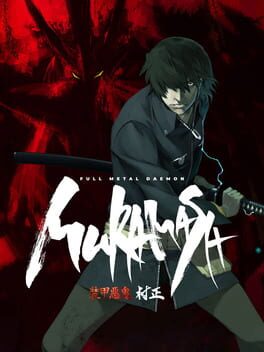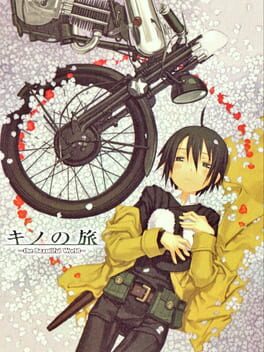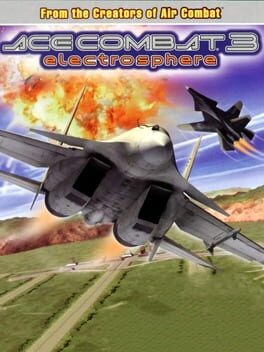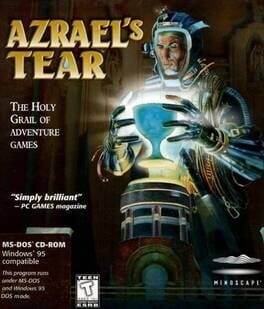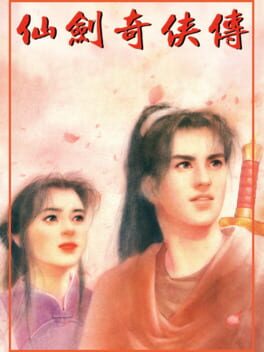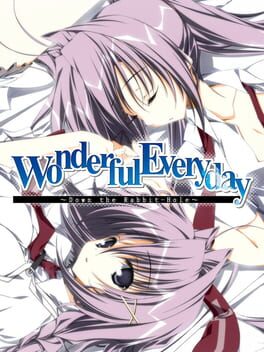296 Reviews liked by thecasccas
Etrian Odyssey
2007
The discourse around hard games which had its mainstream nascence at the beginning of the last decade amounts to the rejection of the frictionless experience typified by the aughts-shooter in favor of games which demand mastery, which have a tutelary and transformative effect on the player. Difficulty results from the game's demand that a player acquire a skill: the ability to time out invincibility frames, or recognize patterns in AI behavior, or think a few steps ahead of the consequences of a move.
Wizardry, and the genre of roleplaying game which emerged around it, is completely out of step with this idea. Proving Grounds of the Mad Overlord isn't difficult because of a learning curve, but because it explains very little, punishes failure very harshly, and makes level-grinding a precondition of success. This is not tough-but-fair difficulty, nor does it carry any promise of personal improvement. It's not rewarding. Beyond perhaps a stronger sense of patience, the difference between a player who's started the game and one who's finished is simply the fact of having had the experience.
Etrian Odyssey is not nearly as mechanically sparse as the Wizardry games, or as devoid of opportunities for strategic thinking. It is also much easier and, with a little foreknowledge about good builds and party composition, never demands conscientious grinding. What it carries on is a sense of difficulty which is forbidding rather than disciplinary, which challenges patience rather than skill. Most importantly, it draws the player forward only with the promise of seeing more. It's the first successful effort at Romanticism in a video game, a Getting Over It with Bennett Foddy for those with taste.
The fact that Etrian Odyssey lacks a conventional narrative structure and has a minimum of dialogue belies the importance of the way the game is framed. At no point is the player given a diegetic motivation to proceed, and brief interactions with other characters only emphasize that there's no practical reason to go on and every reason to stop. One's party reaches the end of the labyrinth out of the same determined curiosity which motivates the player, and the fact that the game's been remade as the story of five conventional anime characters saving the world calls to mind Joss Whedon's Stalker.
The game only works because of the incredibly lush world art, the strength of the soundtrack, and the fact that the battle system, while not terribly deep, has enough variety to hold one's interest, and each of these aspects would return in future games in the series. What's special to this game, though, the way it's in conversation with its genre and makes an effort to articulate what that genre's about, isn't something that could really persist in a best-selling JRPG franchise.
I'm also fairly certain this was the first non-eroge Himukai worked on, which is just hysterical to consider. The union of sex perverts and dungeon-crawler perverts which was effected here was the marriage of Isabella and Ferdinand of our times.
Wizardry, and the genre of roleplaying game which emerged around it, is completely out of step with this idea. Proving Grounds of the Mad Overlord isn't difficult because of a learning curve, but because it explains very little, punishes failure very harshly, and makes level-grinding a precondition of success. This is not tough-but-fair difficulty, nor does it carry any promise of personal improvement. It's not rewarding. Beyond perhaps a stronger sense of patience, the difference between a player who's started the game and one who's finished is simply the fact of having had the experience.
Etrian Odyssey is not nearly as mechanically sparse as the Wizardry games, or as devoid of opportunities for strategic thinking. It is also much easier and, with a little foreknowledge about good builds and party composition, never demands conscientious grinding. What it carries on is a sense of difficulty which is forbidding rather than disciplinary, which challenges patience rather than skill. Most importantly, it draws the player forward only with the promise of seeing more. It's the first successful effort at Romanticism in a video game, a Getting Over It with Bennett Foddy for those with taste.
The fact that Etrian Odyssey lacks a conventional narrative structure and has a minimum of dialogue belies the importance of the way the game is framed. At no point is the player given a diegetic motivation to proceed, and brief interactions with other characters only emphasize that there's no practical reason to go on and every reason to stop. One's party reaches the end of the labyrinth out of the same determined curiosity which motivates the player, and the fact that the game's been remade as the story of five conventional anime characters saving the world calls to mind Joss Whedon's Stalker.
The game only works because of the incredibly lush world art, the strength of the soundtrack, and the fact that the battle system, while not terribly deep, has enough variety to hold one's interest, and each of these aspects would return in future games in the series. What's special to this game, though, the way it's in conversation with its genre and makes an effort to articulate what that genre's about, isn't something that could really persist in a best-selling JRPG franchise.
I'm also fairly certain this was the first non-eroge Himukai worked on, which is just hysterical to consider. The union of sex perverts and dungeon-crawler perverts which was effected here was the marriage of Isabella and Ferdinand of our times.
Mega Man Legends 2
2000
Unhinged. TMMC takes Zelda 1's movement, combat, and even level design philosophy and adapts it into a fast-paced hack-and-slash arcade game. The flow is excellent, but the game is insanely difficult, especially concerning castles 3 and 4 (screw the white ninjas). Strangely enough, the last castle is quite easy.
Power Bomberman
2013
Even though this is a mod for Hearts of Iron IV, Im logging it as a full ass game because it may as well be. TNO uses HOI4's game as infrastructure to tell horrifying, inspiring, hopeful, nihilistic, and optimistic stories about the human spirit through the usually tired "nazis win" althist. The autism (honorific) is on full display here, with a world that has no business being so incredibly polished, detailed, and realistic to the subject matter, while still being intriguing and entertaining. In TNO, you don't play HOI4 in the sense of building up a massive army and slogging it out in a great war against an opponent that is also trying to beat you. Instead, you play HOI4 with an emphasis on the focus tree and decision making to build paths that will cascade off the decisions and paths of other countries to end up on one of literally dozens of outcomes/endings. Each interaction feels natural and realistic, and nothing I saw ever conflicted. Its a miracle of storyboarding. You still fight wars in TNO, but they are much smaller scale, and mostly scripted, which is kinda fun in its own way.
The mod is on workshop. If you have HOI4, play it. If you don't have HOI4. Seriously consider if you are HOI4's demographic, and if you are, buy HOI4 and play TNO after the vanilla game.
The mod is on workshop. If you have HOI4, play it. If you don't have HOI4. Seriously consider if you are HOI4's demographic, and if you are, buy HOI4 and play TNO after the vanilla game.
Will be posting this on both Kino No Tabi I and II's pages since it will mainly be an analysis of the series' themes and are pretty much interchangeable with each other.
The language barrier impedes most of consuming media that would attract us elsewhere. Most Visual Novels and Japan exclusive titles suffer the fate of being forever stuck in obscurity without the ability to even be translated. While some do manage to escape from Nihon hell thanks to fan translations or even full on localizations, the raw poetry of the words, the dancing of words and playfulness of entendres is lost in many instances either way.
Kino No Tabi is a series of light novels published in sparsity since the 2000s, dealing with the protagonist Kino and her talking motorcycle Hermes as they explore the vast world around them, only staying at countries for 3 days max to assess all there is about the land's culture, their practices and alike before leaving and exploring the next terrain.
I do feel that literature is the best art form to encapsulate the human condition. Due to the way we can explore multiple perspectives, narrate of scenery, topics and imaginary fields for the longest of times along with the powerful image formed into our minds without the need of visuals, a story can tell much without ever explicitly showing the cards at it's hands.
While Visual Novels tend to reach literature and theatrical releases a lot more than they do video games in terms of writing, many visual novels tend to be hit or miss exactly due to that, they either accept their enhancements given by the way of visuals and soundtracks, or fall short on properly utilizing it's own medium. Afterall, if I'm going to be stuck reading for the next few hours, you might as well aid the atmosphere with some tunes or do more than put a doodle with a few different expressions to emote for me.
This is where Kino shines. We've got a fantastic soundtrack to accompany us in our travels, a fully narrated game with different voices for each character, animatics and moving sceneries to illustrate the stories being told, all of that culminate in the most beautiful writing conceived about the mysteries of exploring what is in and outside of the mind.
Here is Kino, always pushing forward in order to know all there is in the world. A reserved young teenager who claims to be fascinated with how the world is not beautiful, therefore making it beautiful because of that instead of in spite of it. A neutral presence who will shake hands with the same arm she uses to shoot the heads of whoever comes between her and her journey. A literal vehicle between us and the end who is nowhere in sight at the same time that is imminent and all encompassing.
Did the segregation of lands derive from a societal collapse? Why is there such an abrupt change in structure and technology between every country? Why can Hermes and other vehicles talk with humans? Will Kino ever find a place to confide and be in peace? Why does the world is so chock full of inequality that so many conflicting messages can be shown to the point of the overall narrative seeming schizophrenic, yet never contradictory?
You might get a glimpse of all these questions and more as it's episodic philosophical themes explore said ventures, however you will be hard pressed to find any answers. Much like the best of literature, it leaves a blank space between author, reader and art for you to fully immerse and live with the thoughts and implications these tales will bring with them.
While there is currently no way to play this in english, all of the tales inside Kino No Tabi I and II are all readable and translated in past and future light novels who were translated by fans, and while some of said genius is lost in translation, I could not encourage you enough to read all of it. It is a shame that we might perhaps never be abtle to support an author as fantastic as Keiichi Sigsawa overseas without him ever knowing of how much his works has changed several of our lives for the best, but if the world is what you make of it, then perhaps some change and hope might be in our way, even if the future or the present show no signs of prosperity, hope does not need a reason to be, much like life, our stories, or the world itself.
The language barrier impedes most of consuming media that would attract us elsewhere. Most Visual Novels and Japan exclusive titles suffer the fate of being forever stuck in obscurity without the ability to even be translated. While some do manage to escape from Nihon hell thanks to fan translations or even full on localizations, the raw poetry of the words, the dancing of words and playfulness of entendres is lost in many instances either way.
Kino No Tabi is a series of light novels published in sparsity since the 2000s, dealing with the protagonist Kino and her talking motorcycle Hermes as they explore the vast world around them, only staying at countries for 3 days max to assess all there is about the land's culture, their practices and alike before leaving and exploring the next terrain.
I do feel that literature is the best art form to encapsulate the human condition. Due to the way we can explore multiple perspectives, narrate of scenery, topics and imaginary fields for the longest of times along with the powerful image formed into our minds without the need of visuals, a story can tell much without ever explicitly showing the cards at it's hands.
While Visual Novels tend to reach literature and theatrical releases a lot more than they do video games in terms of writing, many visual novels tend to be hit or miss exactly due to that, they either accept their enhancements given by the way of visuals and soundtracks, or fall short on properly utilizing it's own medium. Afterall, if I'm going to be stuck reading for the next few hours, you might as well aid the atmosphere with some tunes or do more than put a doodle with a few different expressions to emote for me.
This is where Kino shines. We've got a fantastic soundtrack to accompany us in our travels, a fully narrated game with different voices for each character, animatics and moving sceneries to illustrate the stories being told, all of that culminate in the most beautiful writing conceived about the mysteries of exploring what is in and outside of the mind.
Here is Kino, always pushing forward in order to know all there is in the world. A reserved young teenager who claims to be fascinated with how the world is not beautiful, therefore making it beautiful because of that instead of in spite of it. A neutral presence who will shake hands with the same arm she uses to shoot the heads of whoever comes between her and her journey. A literal vehicle between us and the end who is nowhere in sight at the same time that is imminent and all encompassing.
Did the segregation of lands derive from a societal collapse? Why is there such an abrupt change in structure and technology between every country? Why can Hermes and other vehicles talk with humans? Will Kino ever find a place to confide and be in peace? Why does the world is so chock full of inequality that so many conflicting messages can be shown to the point of the overall narrative seeming schizophrenic, yet never contradictory?
You might get a glimpse of all these questions and more as it's episodic philosophical themes explore said ventures, however you will be hard pressed to find any answers. Much like the best of literature, it leaves a blank space between author, reader and art for you to fully immerse and live with the thoughts and implications these tales will bring with them.
While there is currently no way to play this in english, all of the tales inside Kino No Tabi I and II are all readable and translated in past and future light novels who were translated by fans, and while some of said genius is lost in translation, I could not encourage you enough to read all of it. It is a shame that we might perhaps never be abtle to support an author as fantastic as Keiichi Sigsawa overseas without him ever knowing of how much his works has changed several of our lives for the best, but if the world is what you make of it, then perhaps some change and hope might be in our way, even if the future or the present show no signs of prosperity, hope does not need a reason to be, much like life, our stories, or the world itself.
Frog Minutes
2011
Azrael's Tear
1996
Baldur's Gate 3
2020
SUMMARY - Worth a shot if it's one of your first few cRPGs. Disappointing writing but many hours of fun battles, though the gameplay isn't perfect.
WRITING - This game's writing puts together unfunny jokes, unlikable quippy characters, a mediocre chuuni JRPG-tier plot, and many shallow storylines together. The writing is a 5/10 at best.
GAMEPLAY - The gameplay is not perfect either. But I can't rate it lower than 4/5 because I was absolutely hooked on this game for 40 hours (to the point of lowering my life standards lol). But it IS the first cRPG I've really played more than an hour of. Anyway, it was fun trying out all of the different spells. Technically speaking it's definitely up there in recent years.
Two of my biggest complaints.
1) Too much shallow content. You just get a few lines per person in these side quests. I don't feel any investment. YOU CAN'T TELL WHICH SIDE QUESTS WILL BE GOOD. Or which people are worth talking to. You can talk to 100 NPCs hoping for something good and you'll get it like 5% of the time. Is it worth investing time in this area? Or this one?
2) Some things weren't obvious enough. An example is when there's some joke or crazy choices you can make - but is the game going to treat it as an innocent joke or will you get screwed over long-term? You have to spam saves.
Now, I'm not a game designer so I don't know how to solve these difficult problems, but they killed the fun like crazy.
There were also lots of small frustrating bugs (probably at least a hundred). At least a few times I had to restart the game or reload from an earlier save (which takes WAY too long) because of these bugs.
Finally I HATE how rigid the system is. It's like those simulators that lack human logic, you know? The things where the game is totally literal whereas an irl DM could feel things out. Anyway one example is perception checks. You don't know how important the perception thing is (sometimes you literally can't proceed without first "perceiving" a button) so you have to go to camp and get some fresh characters to come back and retry the perception. So dumb. Also the whole "guards noticing you doing bad stuff" system kills fun like crazy.
Also being able to speed up combat would be nice.
FINAL THOUGHTS - Honestly a game from the Persona series would be a better investment of my time. The linearity allows the devs to focus better. I don't need a Tech Demo of "freedom", I just want a fun series of experiences. Freedom comes second. And yeah, before you complain that I'm an "anime-biased person", Persona's writing is simply better. They at least spend time on writing the characters. Baldur's Gate 3 suffers so much from "poetry over story" (making things sound all fancy and poetical but it's all nonsensical so it doesn't matter) and characters only have a few lines, it's so boring.
WRITING - This game's writing puts together unfunny jokes, unlikable quippy characters, a mediocre chuuni JRPG-tier plot, and many shallow storylines together. The writing is a 5/10 at best.
GAMEPLAY - The gameplay is not perfect either. But I can't rate it lower than 4/5 because I was absolutely hooked on this game for 40 hours (to the point of lowering my life standards lol). But it IS the first cRPG I've really played more than an hour of. Anyway, it was fun trying out all of the different spells. Technically speaking it's definitely up there in recent years.
Two of my biggest complaints.
1) Too much shallow content. You just get a few lines per person in these side quests. I don't feel any investment. YOU CAN'T TELL WHICH SIDE QUESTS WILL BE GOOD. Or which people are worth talking to. You can talk to 100 NPCs hoping for something good and you'll get it like 5% of the time. Is it worth investing time in this area? Or this one?
2) Some things weren't obvious enough. An example is when there's some joke or crazy choices you can make - but is the game going to treat it as an innocent joke or will you get screwed over long-term? You have to spam saves.
Now, I'm not a game designer so I don't know how to solve these difficult problems, but they killed the fun like crazy.
There were also lots of small frustrating bugs (probably at least a hundred). At least a few times I had to restart the game or reload from an earlier save (which takes WAY too long) because of these bugs.
Finally I HATE how rigid the system is. It's like those simulators that lack human logic, you know? The things where the game is totally literal whereas an irl DM could feel things out. Anyway one example is perception checks. You don't know how important the perception thing is (sometimes you literally can't proceed without first "perceiving" a button) so you have to go to camp and get some fresh characters to come back and retry the perception. So dumb. Also the whole "guards noticing you doing bad stuff" system kills fun like crazy.
Also being able to speed up combat would be nice.
FINAL THOUGHTS - Honestly a game from the Persona series would be a better investment of my time. The linearity allows the devs to focus better. I don't need a Tech Demo of "freedom", I just want a fun series of experiences. Freedom comes second. And yeah, before you complain that I'm an "anime-biased person", Persona's writing is simply better. They at least spend time on writing the characters. Baldur's Gate 3 suffers so much from "poetry over story" (making things sound all fancy and poetical but it's all nonsensical so it doesn't matter) and characters only have a few lines, it's so boring.
An all-time classic with a beautiful story, but the gameplay is seriously outdated.
The Legend of Sword and Fairy can be considered the most influential game in China. It even creates a unique fantasy genre we call XianXia today.
But from the perspective of a modern player, I don't think it's that good. The dungeon design pursues complexity but lacks challenge, and the encounter battles are too monotonous. And as a JRPG imitation, there is no large world map to explore is also a major shortcoming.
If you want to learn more, this video made by Lunamos describes in great detail the background and specific content of this game
The Legend of Sword and Fairy can be considered the most influential game in China. It even creates a unique fantasy genre we call XianXia today.
But from the perspective of a modern player, I don't think it's that good. The dungeon design pursues complexity but lacks challenge, and the encounter battles are too monotonous. And as a JRPG imitation, there is no large world map to explore is also a major shortcoming.
If you want to learn more, this video made by Lunamos describes in great detail the background and specific content of this game
